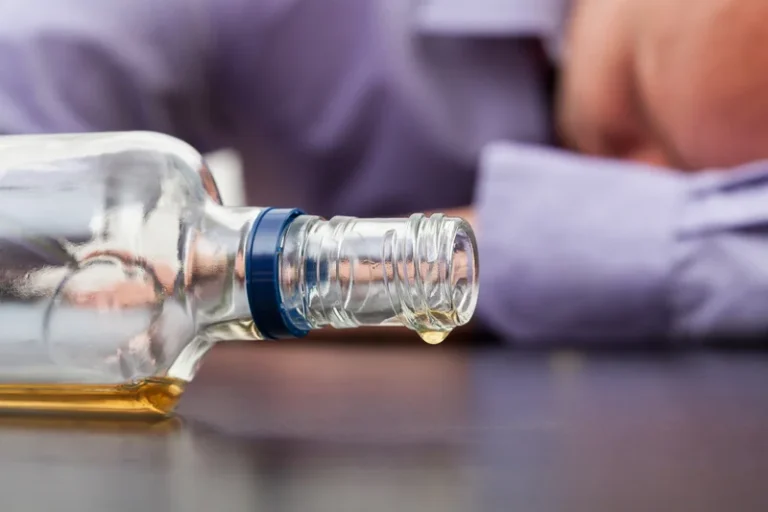Drug addiction substance use disorder Diagnosis and treatment
Dependence involves both a physical and psychological reliance on alcohol, making it harder to quit without help. This guide aims to offer a clear and comprehensive roadmap for those struggling with alcohol addiction and seeking recovery. Here, you’ll find straightforward information on understanding addiction, exploring treatment options, and taking steps toward a healthier, alcohol-free life. Whether you’re just starting to seek help or are already on the path to recovery, this guide is designed to support and inform you every step of the way.
out of 10 people in the United States have issues with mental health, drugs, or alcohol
Contact your primary care provider, health insurance plan, local health department, or employee assistance program for information about specialty treatment. Your provider may also be able to suggest an online self-guided program. Such e-health tools have been shown to help people overcome alcohol problems.
More than a million Americans have died from overdoses during the opioid epidemic
Formal barriers to reentering treatment are discussed and addressed, and scheduling and transportation to treatment are arranged. Two important challenges faced during the continuing care phase of treatment are patient dropout and changes in the patient’s clinical needs over time. Therefore, effective clinical care must include elements that facilitate better retention and must be flexible enough to adapt to the changing needs of individuals.
Care while traveling
Others do well on their own making use of available community resources. Addiction doesn’t just affect individuals; addiction is a family affliction. The uncertainty of a person’s behavior tests family bonds, creates considerable shame, and give rise to great amounts of anxiety. Because families are interactive systems, everyone is affected, usually in ways they are not even aware of. When a person goes into treatment, it isn’t just a case of fixing the problem person. The change destabilizes the adaptation the family has made—and while the person in recovery is learning to do things differently, so must the rest of the family learn to do things differently.


Just like any other medical condition, people with substance use disorders deserve to have a range of treatment options available to them. Scientists are working to develop a larger menu of pharmaceutical treatments that could be tailored to individual needs. Cognitive–behavioral therapy can take place one-on-one with a therapist or in small groups. This form of therapy is focused on identifying the feelings and situations (called “cues”) that contribute to heavy drinking and managing stress that can lead to a return to drinking. The goal is to change the thought processes that lead to alcohol misuse and to develop the skills necessary to cope with everyday situations that might trigger alcohol misuse.

Long-term alcohol abuse can lead to serious and widespread health issues. Over time, excessive drinking can damage nearly every organ system in the body. For example, the liver is particularly vulnerable; chronic alcohol use can cause liver inflammation, fatty liver, alcoholic hepatitis, and eventually cirrhosis. This liver damage can result in liver failure and increase the risk of liver cancer. A randomized study in Switzerland evaluated a continuing care intervention using text messaging to monitor self-selected drinking goals. The intervention also provided motivational text messages and telephone calls when participants failed to achieve goals or asked for support.47 Participants in the SMS condition responded to 88% of the SMS prompts, and 44% sent at least one request for help.
How do behavioral therapies treat drug addiction?
The prospect of change engages people in an inner dialogue about hope, disappointment, and accountability. Saying a mantra, substituting thoughts of recovery goals, praying, reading something recovery-related, reaching out to someone supportive—all are useful tactics. Cravings diminish and disappear in time unless attention is focused on them. Negotiating with oneself for a delay of use, which doesn’t deny the possibility of future use, and then getting busy with something else, capitalizes on the knowledge that cravings dissipate in about 15 minutes. Curious about whether your insurance will cover the entirety of your addiction care?
People can learn to resist or outsmart the cravings until they become manageable. There are strategies of distraction and action people can learn to keep them from interrupting recovery. Another is to carefully plan days so that they are filled with healthy, successful drug addicts absorbing activities that give little time for rumination to run wild. Exercise, listening to music, getting sufficient rest—all can have a role in taking the focus off cravings. For many of those who are addicted, enduring even that action is unimaginable.
International Patients
- • Meaning and purpose—finding and developing a new sense of purpose, which can come from many sources.
- • Empowerment—finding the wherewithal to cope with recovery and the challenges of life, which breeds a sense of self-efficacy.
- He was also able to convince his insurance company to pay for longer-term treatment.
- Biologically, addiction happens because alcohol affects the brain’s reward system.
SAMHSA recently awarded $68 million in grants for suicide prevention and mental health care programs to address the U.S. mental health crisis and prevent suicide. Not only is addiction relapse common, relapse is not considered a sign of failure. In fact, people in recovery might be better off if the term “relapse” were abandoned altogether and “recurrence” substituted, because it is more consistent with the process and less stigmatizing. Many types of recovery support are available, and many people make use of more than one type at any time and may shift from one type of support to another as recovery proceeds and needs evolve. An increasing number of high schools and colleges offer addiction recovery resources (CRPS, or Collegiate Recovery Programs) for students, including mentors, workshops, dedicated lounges, and group meetings and activities.

